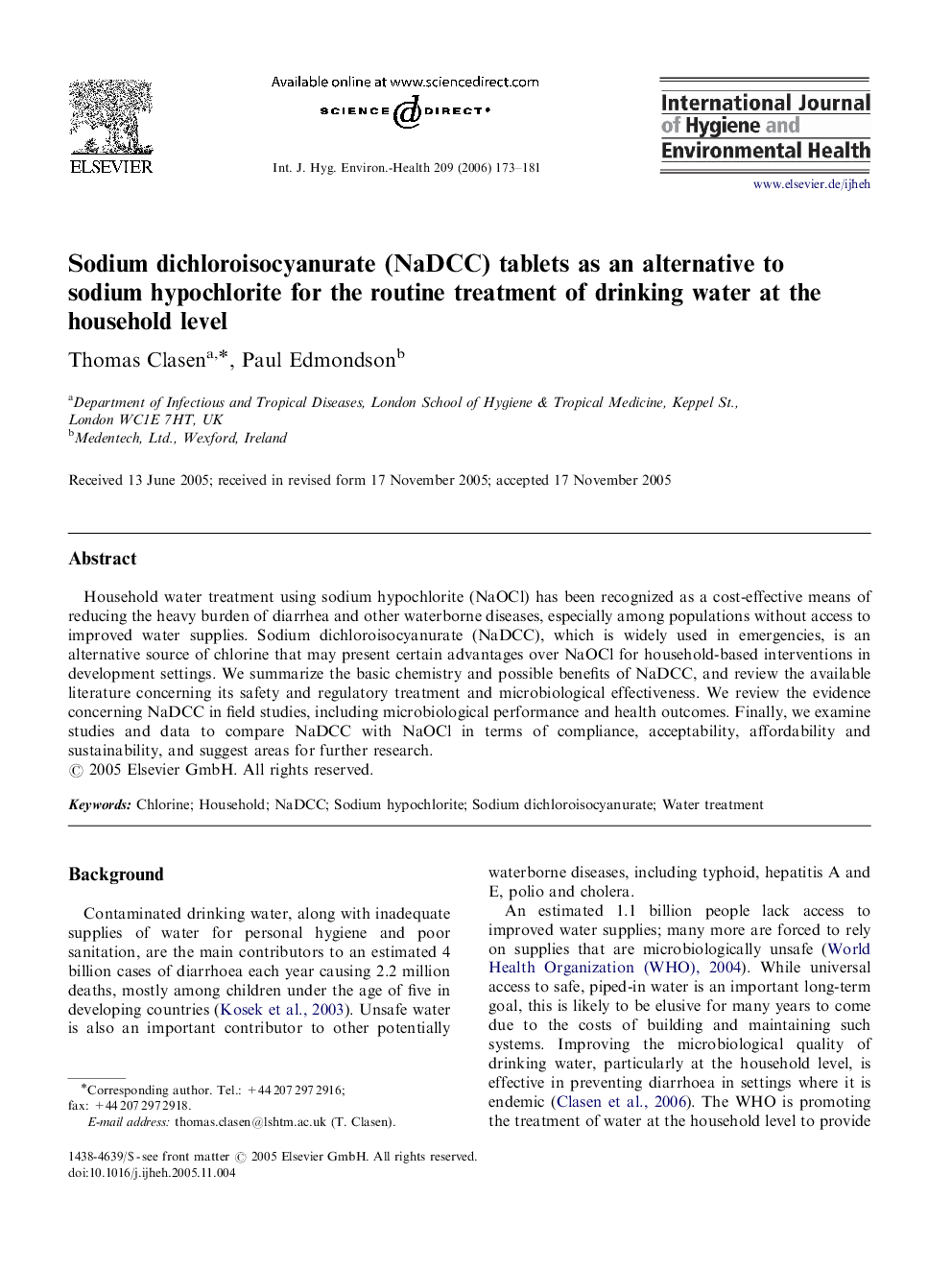| Article ID | Journal | Published Year | Pages | File Type |
|---|---|---|---|---|
| 2589063 | International Journal of Hygiene and Environmental Health | 2006 | 9 Pages |
Household water treatment using sodium hypochlorite (NaOCl) has been recognized as a cost-effective means of reducing the heavy burden of diarrhea and other waterborne diseases, especially among populations without access to improved water supplies. Sodium dichloroisocyanurate (NaDCC), which is widely used in emergencies, is an alternative source of chlorine that may present certain advantages over NaOCl for household-based interventions in development settings. We summarize the basic chemistry and possible benefits of NaDCC, and review the available literature concerning its safety and regulatory treatment and microbiological effectiveness. We review the evidence concerning NaDCC in field studies, including microbiological performance and health outcomes. Finally, we examine studies and data to compare NaDCC with NaOCl in terms of compliance, acceptability, affordability and sustainability, and suggest areas for further research.
